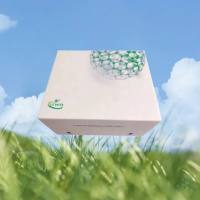Delivery and Expression of Heterologous Genes in Mammalian Cells Using Self-Replicating Alphavirus Vectors
互联网

互联网

相关产品推荐

Lentivirus Packaging Vectors Set A
¥1299

Recombinant-Arabidopsis-thaliana-Protein-CPR-5CPR5Protein CPR-5 Alternative name(s): Protein constitutive expression of pathogenesis-related genes 5; Protein constitutive expression of PR genes 5 Protein hypersenescence-1
¥13790

Mixture/Dose Delivery System
¥90000

MKN45人低分化胃癌细胞|MKN45细胞(Human Poorly Differentiated Gastric Cancer Cells)
¥1500

Recombinant-Saccharomyces-cerevisiae-Syntaxin-8SYN8Syntaxin-8 Alternative name(s): SNARE protein related to mammalian syntaxin 8 ULP1-interacting protein 2
¥11046
相关问答

